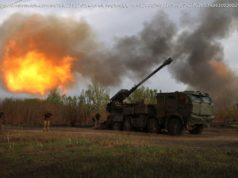As a sports medicine/psychiatrist, David Baron, provost at Western University of Health Sciences in Pomona, will focus on the mental health of athletes in the winter games.
Olympic gymnast Simone Biles withdrew from the team finals last summer, calling it a case of the twisties. Tennis champion Naomi Osaka withdrew from the French Open, citing depression and social anxiety. NBA star Kevin Love ‘s anxiety and depression got so bad at point, he said, he did not leave his bedroom for months. As more elite athletes reveal their mental health struggles, it makes Dr. David Baron, sports psychiatrist and provost for Western University of Health Sciences in Pomona, very happy. Not because these athletes suffered through dark times, Baron explains, but because they found a way out, received professional help and are lifting the stigma attached to mental health care. “We are starting to turn the corner for the sports world to realize mental health is a critically important component of physical health,” said Baron, who will board a flight Jan.27 to Beijing to serve as the sports medicine/psychiatrist for Team USA at the 2022 Winter Olympic Games. Baron will stay in the Olympic Village, set up as a bubble with no one leaving for city sight-seeing, and return to his home in Pasadena on Feb.24. He brings with him decades of experience, including stints at the 1984,1992,1996,2004 and 2012 Olympic games, sometimes working on doping control, other times treating both physical and mental ailments. After the bombing during the 1996 summer games in Atlanta, he soothed a lot of frayed nerves, he recalled. With the challenges of the coronavirus pandemic, his job becomes more complicated, Baron said. He knows that isolation from loved ones and not being able to socialize with other athletes, plus anxiety about contracting COVID-19, will be on top of the list of athletes’ concerns affecting their mental well-being and, possibly, their performances. COVID-19 has disrupted training regimens due to social distancing, adding to emotional stress, Baron said. “That affects them, especially those athletes shaving tenths or hundreds of a second off their time in order to win a medal,” he added.
Домой
United States
USA — Sport WesternU provost to give Team USA a mental boost at Beijing Olympics






